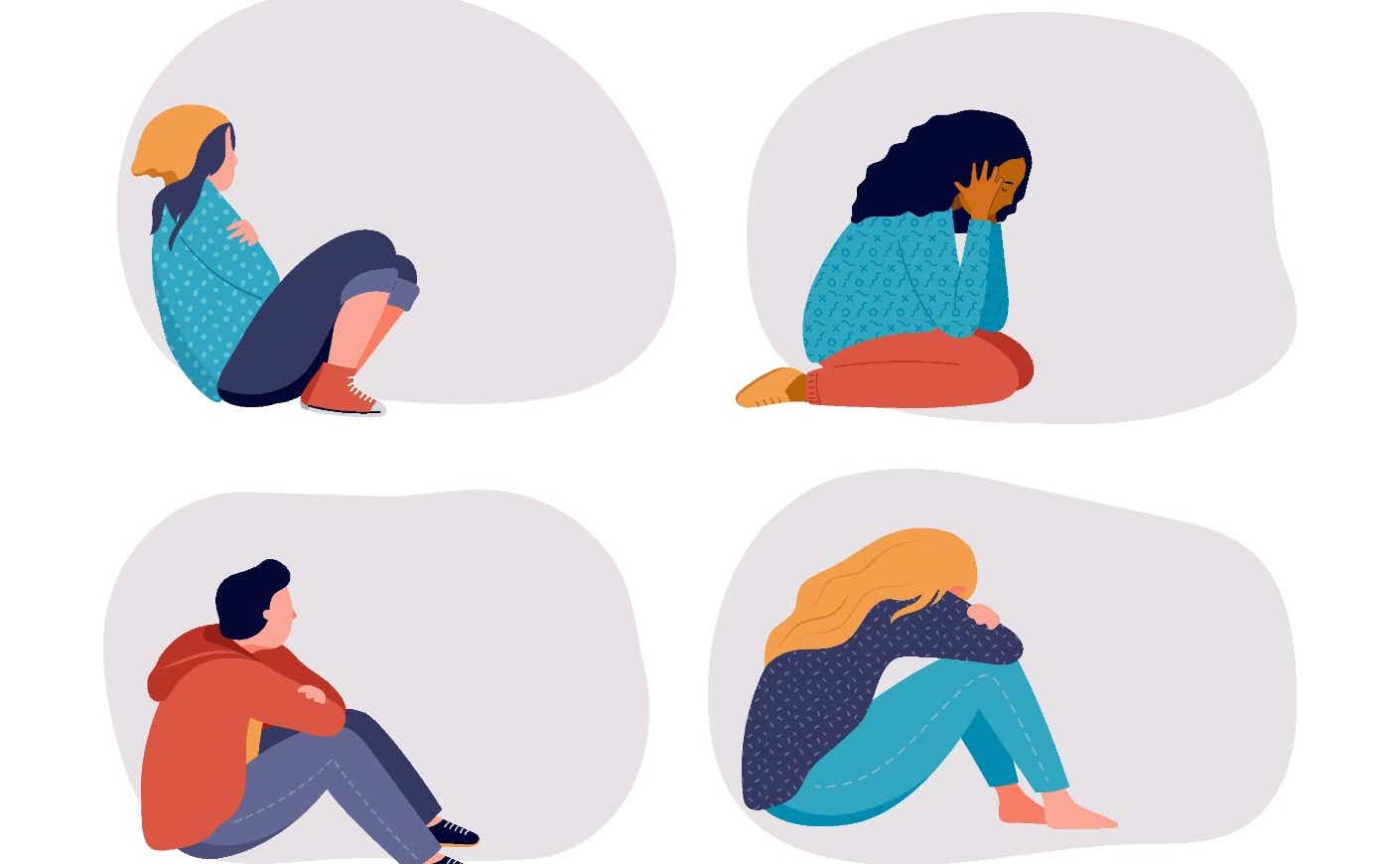The Centers for Disease Control and Prevention just added mood disorders like depression to a long list of mostly physical conditions that put people at high risk for severe coronavirus cases, and advocates believe it’s long overdue.
"NAMI [National Alliance on Mental Illness] values the recognition by the CDC for the data that has emerged over the course of the pandemic showing people with depression and schizophrenia are at increased risk for severe COVID-19 symptoms,” says Christine Crawford, who’s an associate medical director at NAMI. “This update to the guidelines takes a holistic approach toward the impact of both mental and physical illness.”
In fact, a study published in JAMA Psychiatry this past July found that Americans with mental health disorders were almost twice as likely to die from Covid-19 than those without them. And this doesn’t even count people with severe mental illnesses like schizophrenia and bipolar disorder, who are more than twice as likely to have fatal Covid-19 symptoms. Schizophrenia, bipolar disorder, and depression are all mood disorders, which the Mayo Clinic defines as a mental health problem that primarily affects a person’s emotional state.
The researchers say these findings could be explained by immune system differences in people with mental health disorders. Dr. Crawford tells us that people with serious mental illness can experience constant stress that can reduce the body’s natural immune system defenses and this, in turn, can “increase their susceptibility to infection and make them more vulnerable to severe Covid-19 symptoms.”
“It's important for us as a society to kind of shift our thinking around that and to think about a condition such as depression, bipolar, and anxiety disorders as general medical conditions, because they are, and they're also chronic medical conditions,” says Dr. Crawford.
What’s worse is many with these conditions have struggled to get access to the care they need during the pandemic due to a lack of access to their support structures, since many have had to close and move online. But Dr. Crawford hopes that the CDC’s recognition of mood disorders will prompt more awareness and greater access to care. “We really need to have a better understanding about the mind-body connection — how one's mental health can have a direct impact on one's physical health,” she tells us.
The timing of this move was also critical amid the rollout of booster shots but that also wasn’t a coincidence, and it effectively made millions of vulnerable Americans eligible for their third shot. “A lot of times these reviews in normal times take months and years to do,” says CDC spokesperson Kanta Sircar, Ph.D. “We have compressed the schedule and even with a compressed schedule, it just takes a while, so when we saw that the boosters were coming, we got all of these our website at once.”
Dr. Sircar says the addition of mental illness to the high-risk list was meant to put healthcare providers on notice. “This list is really to help medical providers,” says Dr. Sircar. “Covid-19 is a new condition — we've only known about it for less than two years. As much as we can learn, we want to share with clinicians and healthcare providers, so it can inform them and give them more information to help their patients.”
In 2019, more than 19 million people — or nearly 8 percent of adults — had at least one episode of depression, and at least half that number were diagnosed with depression, bipolar disorder, or schizophrenia, according to the National Institutes of Health. But these numbers have only grown since then: the pandemic triggered 53 million new cases of depression worldwide in 2020, which marks a 28 percent spike from the previous year, according to research published this month in the journal Lancet.
But Dr. Crawford hopes these startling statistics will lead to more research. “My hope is that this will also continue to generate more research and exploration around the connection between these chronic mental health conditions and these patients’ vulnerability to acquiring certain infections,” she says.









